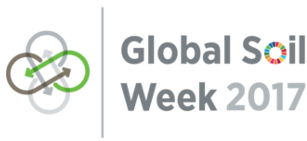IASS and Partners Discuss Options for Successful Implementation of Post-2015 Development Agenda at UN
In September, UN Member States will agree on a Post-2015 Development Agenda and adopt a set of sustainable development goals (SDGs). To ensure the successful implementation of the SDGs at national level, effective follow-up and review mechanisms are required. These mechanisms are due to be negotiated this week at the United Nations. In the run-up to the negotiations, the IASS organised a high-level event, together with its partners, the United Nations Environment Programme, the International Fund for Agricultural Development, the Biovision Foundation and the Millennium Institute. More than 60 representatives of politics, science and civil society attended the event in New York on 12 and 13 May. It built on discussions at the 3rd Global Soil Week about the sustainability of the SDGs and the need for coordination at national level in order to resolve any conflicts of interest inherent in the SDGs.

More than 60 representatives of politics, science and civil society discussed monitoring and review mechanisms of the SDGs. (c) IASS
“Many SDGs result in the use of natural resources. That’s why, when implementing the post-2015 Agenda, we need to detect potential conflicts of interest and address them in inclusive, participatory procedures,” emphasised Alexander Müller, IASS Secretary-General.
At the end of the high-level event, Jes Weigelt, head of the Global Soil Forum at the IASS, concluded: “There is a broad consensus regarding the participation of civil society and the scientific community in the implementation and monitoring of the SDGs.” Weigelt stressed that every effort should be made to ensure that nobody is excluded from this process. In another outcome of the high-level event, participants agreed that in the monitoring of SDGs not only statistical data should be considered but also other forms of knowledge, such as traditional knowledge. The importance of these outcomes was highlighted during the concluding discussion by Thomas Gass, Assistant Secretary-General for Policy Coordination and Inter-Agency Affairs in the UN’s Department of Economic and Social Affairs, and Gerda Verburg, Chair of the UN Committee on World Food Security.
At a subsequent side event on 18 May, the IASS discussed the conclusions reached at the high-level event with representatives of UN Member States currently in the process of negotating such monitoring mechanisms for the Post-2015 Agenda. The IASS will continue these discussions at European level at a dialogue on sustainable biomass in the Post-2015 Agenda at the end of June.
Further information:
- Detailed Report on the “High-Level Event on Follow-up and Review Mechanisms for Natural Resource Management and Governance to Achieve the Sustainable Development Goals (SDGs)” published by the Reporting Service of the International Institute for Sustainable Development.
